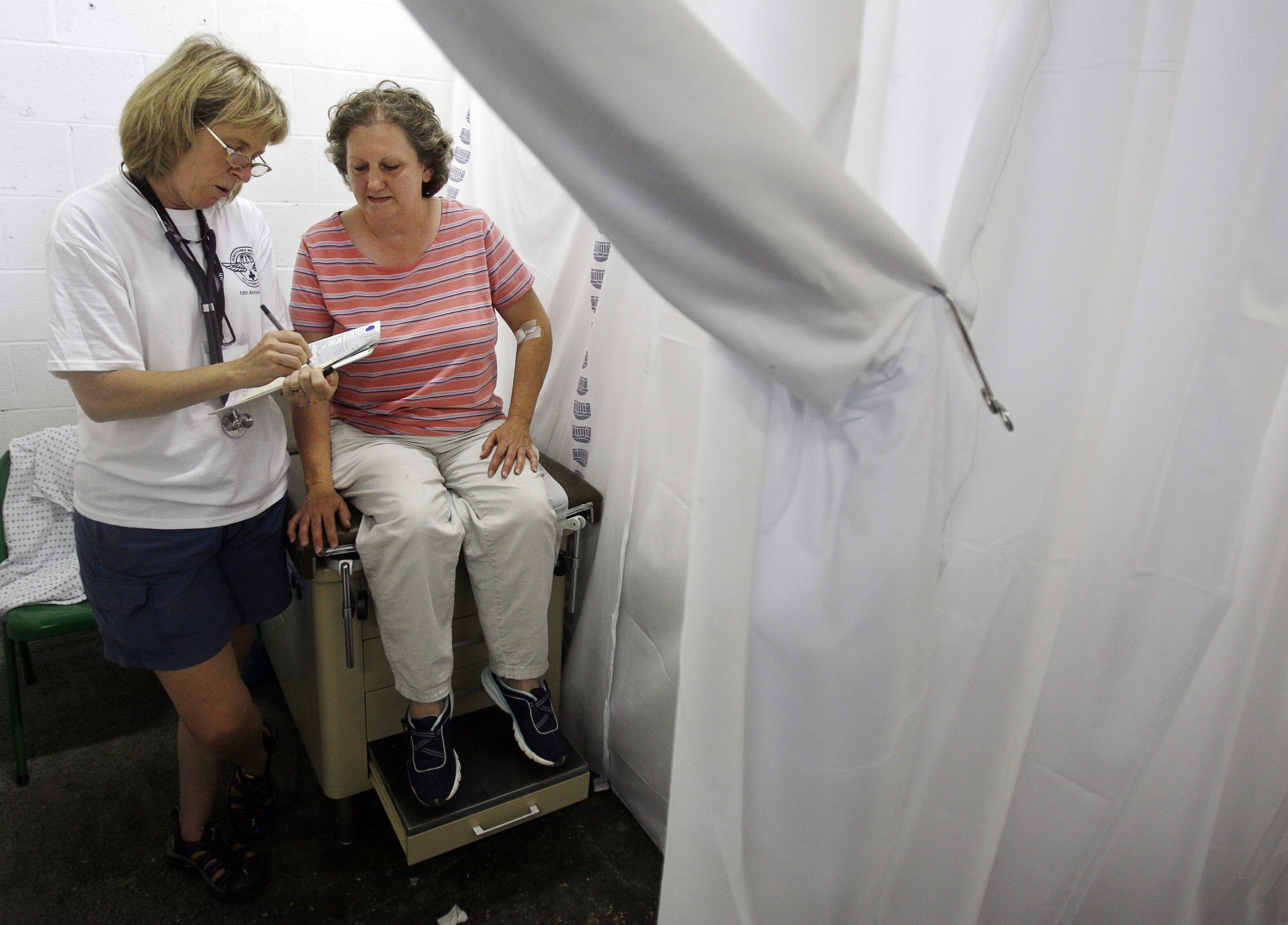How are female leaders tackling workplace bias?
International Women’s Day 2022 presents an opportunity to develop a greater awareness of workplace bias.
Image: REUTERS/Peter Nicholls
Stay up to date:
Education, Gender and Work
- Women at all stages of employment experience workplace bias – from job applicants to presidents.
- International Women’s Day presents an opportunity to develop a greater awareness of the innate human tendency to categorize and stereotype.
- We asked members of our Young Global Leaders Community how they are attempting to overcome unconscious bias in their workplaces to create more representative power structures.
Women have made considerable strides in the labour force over the past few decades. They are working more hours, pursuing higher education in greater numbers, while also holding more prominent positions than before.
Despite these advances, however, inequities between men and women in the workforce remain pronounced. For the second year in a row, the World Economic Forum Global Gender Gap Report 2021 indicates a reversal in a global movement towards gender equality – future generations will absorb these imbalanced gender perceptions.
This International Women’s Day, we must acknowledge the role unconscious bias plays in affecting our individual abilities to achieve our own potential. Research has shown that even those who consider themselves gender champions fall sway to unconscious bias.
For example, a recent study showed recommendation letters written to promote students’ achievements were found to value characteristics along distinctly gendered lines in their descriptions of intelligence and capacities. Academics analysed more than 9,000 reference letters written between 2017 and 2020 and found that women are more likely to be praised for being hardworking rather than for their abilities.
Bias negatively impacts even those at the highest levels of power, as several recent incidents involving European Commission President Ursula von der Leyen have demonstrated.
As friends, family members, future employers and fellow citizens of rising generations, we must develop greater awareness of the innate human tendency to categorise and stereotype. We asked members of our Young Global Leaders Community for the tools and practices they use to overcome unconscious bias to achieve more representative power structures.
'Challenging biases to consciously frame questions'
Catherine Lenson, Managing Partner, SoftBank Investment Advisers
Too often, a female founder’s experience of raising venture capital is far too different from that of her male counterparts. According to a 2018 study, we ask men to win and women not to lose. That means our questions to men are about opportunity, growth and potential; and to women they are about risk, threat, and loss.
Through our Emerge accelerator, SoftBank has invested in 22 startups founded by diverse entrepreneurs. Challenging our biases as investors allows us to consciously frame questions to find the best companies in the market and to back leading female founders across the world.
Accept our marketing cookies to access this content.
These cookies are currently disabled in your browser.
'Forging positive visibility of women'
Laura Gersch, Member of the Board of Management, Corporate Pensions, Allianz
While mobile working triggered by the pandemic is a blessing in some dimensions, it has also led to more women taking additional time for care duties at home than men. As a consequence, these women are becoming less visible in the workplace again.
When transitioning into the pandemic recovery, I will forge positive visibility of women. I want to support women to be seen and heard whether they are in the home office or physically present in a meeting.
'Ensuring flexible working does not become all-consuming'
Anulika Ajufo, Venture Partner, Europe, Middle East and Africa, Sagana
As a black female leader and a mother, I am acutely aware of the challenges faced by women in the marketplace. The first thing we did in navigating around the pandemic, was ensure we could make the new normal sustainable.
Health and wellness have been at the centre of this effort and this has required us to think much more broadly about our responsibility for the whole human. Flexible working hours have been key to allowing our staff to manoeuvre around the demands of their daily lives in this new environment.
With this added flexibility, we have enforced boundaries to ensure that flexible working does not become all-consuming. We continue to work to assuage any concerns our staff have about their choice to work remotely impacting their career goals.
What's the World Economic Forum doing about the gender gap?
'Holding a stirrup so female peers can get a leg up'
Alexis Crow, Global Head, Geopolitical Investing, PwC
As we begin to emerge from the global pandemic, I am focused on advancing female economic empowerment in the workplace by listening to my female colleagues and mentees. I want to support their highest levels of productivity amidst the wholeness of life.
Empirical research highlights the ways in which female executives can actually boost company performance by interpreting ‘signals’ of productivity from female workers. As more women enter (and re-enter) the labour force, there is a corollary need for more female executives to support these women in achieving their highest potential.
As the metric of measure for female economic empowerment moves with each generation, I am also focused on holding a stirrup so that my female peers can get a 'leg up'. The advancement of these emerging leaders presents a win-win scenario in which everyone gains, including organizations as a whole.
'Demanding to see participation of other women'
Bogolo Joy Kenewendo, Managing Director of Kenewendo Advisory and the former Minister of Investment, Trade and Industry in Botswana
Unconscious biases are informed by social constructs that we learn early in our childhood: that girls can’t do certain things or don’t belong in certain spaces. Becoming aware of these biases was a first step for me.
Now, in whatever space I’m in, I demand to see participation of other women. I’m acutely aware that perceptions form policy and policy can inform perception. That’s why I work with organisations such as Women Political Leaders and the EJS Center’s Amujae Initiative that aim to change the perception of women in leadership. I also advocate for regulatory reforms that enable women to have agency in all spheres.
'Giving women a fair shot to provide for their families'
Jessica Jackson, Chief Advocacy Officer, Reform Alliance
I have spent most of my professional career as a working mom, including as a single mother, and have found myself judged on more occasions than I care to recollect. But the pandemic forced men and women alike to juggle familial and professional responsibilities in new and entirely unprecedented ways. This has created an opening for shared empathy and understanding.
As we transition toward recovery, I am working to cultivate and strengthen that empathy while creating an environment where women have access to flexibility, fair wages, and a fair shot to provide for their families while thriving in their careers.
'Making a difference in personal spheres of influence'
Maya Roy, Director of Programmes and Partnerships, Institute for Change Leaders
I am challenging my own internal bias daily and consistently by having a clear plan with metrics, hiring colleagues with specific expertise, and developing accountability partnerships to review. All the while, I'm ensuring that I engage in regular professional development and study.
With the global reckoning around anti-racism, it is particularly important for racialized people to interrogate their own anti-Blackness, shadism, and caste prejudices, while also mainstreaming this work in their own organizations. After all power is only useful, when we use it to make a difference in our personal spheres of influence.
Don't miss any update on this topic
Create a free account and access your personalized content collection with our latest publications and analyses.
License and Republishing
World Economic Forum articles may be republished in accordance with the Creative Commons Attribution-NonCommercial-NoDerivatives 4.0 International Public License, and in accordance with our Terms of Use.
The views expressed in this article are those of the author alone and not the World Economic Forum.
Forum Stories newsletter
Bringing you weekly curated insights and analysis on the global issues that matter.
More on Equity, Diversity and InclusionSee all
Nina Rawal and Dorothy Chou
September 18, 2025
Bolor-Erdene Battsengel and Grace Marr
September 4, 2025
Tariq Bin Hendi
August 26, 2025
Katy Talikowska
August 18, 2025




